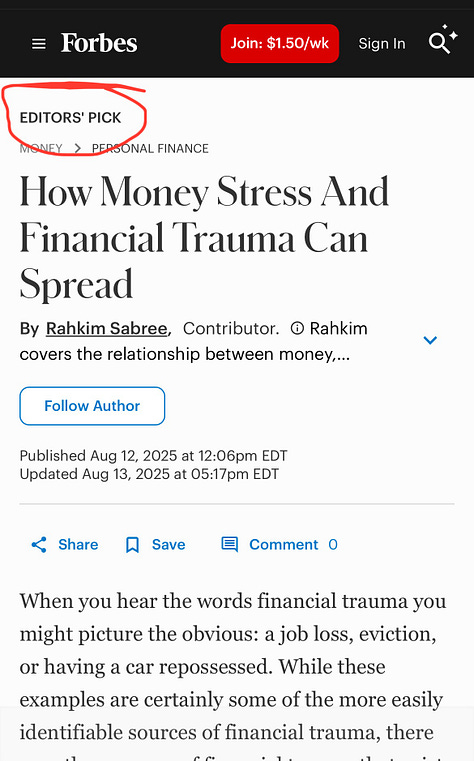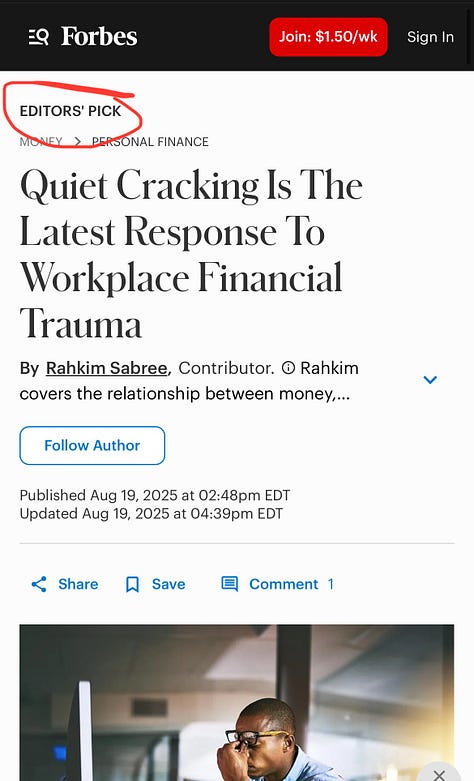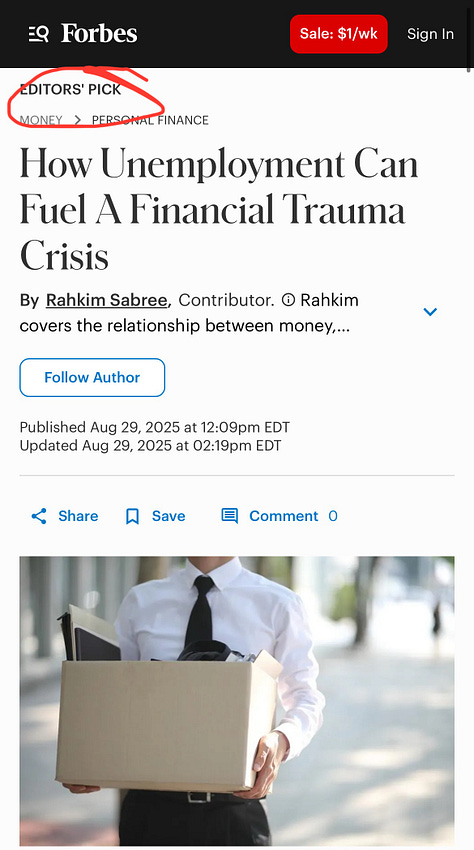
Three articles. Three weeks. Three Forbes Editor’s Picks.
That’s not luck—it’s a signal.
A signal that financial trauma is no longer a fringe conversation. It’s front-page worthy. Editors, readers, and policymakers are paying attention. And it’s a reminder that when we talk about money, we’re not just talking about numbers—we’re talking about survival, dignity, and identity.



Over the last three weeks, I’ve written about:
Unemployment as a driver of financial trauma
Quiet Cracking as a response to workplace financial trauma
How Money Stress and financial trauma spreads through observation and socialization
Each of these pieces was selected as a Forbes Editor’s Pick. That recognition matters to me, not just for visibility, but for what it says about the moment we’re in. Financial trauma is breaking through. The conversation is growing.
In my forthcoming book, Overcoming Financial Trauma (Wiley, 2025), I outline six distinct sources of financial trauma:
Generational
Vicarious/Observational
Financial Instability & Poverty
Workplace/Employment
Institutional/Systemic
Family/Societal/Religious
Right now, financial instability and poverty are at the forefront of the national conversation. Unemployment is being spotlighted. Homelessness is being criminalized. Millions of Americans are living one paycheck away from crisis.
Financial trauma shows up in our minds and bodies. It’s not just a lack of money—it’s the sleepless nights, the cortisol spikes, the fear of eviction, and the impossible choices between groceries and medical care. That’s what’s resonating with readers—and why Forbes editors keep putting a spotlight on this work.
What I find most powerful about this streak isn’t the recognition itself, but what it says about where we are as a society:
People are ready to name their struggles with money as trauma.
Media platforms are recognizing the urgency of this conversation.
And slowly, we’re shifting from blaming individuals to examining systems.
If you’ve been following along, I’d love to hear from you:
Where have you seen financial instability show up in your own life or community?
What conversations about financial trauma do you want to see elevated next?
Leave a comment, reply to this email, or share this post with someone who needs to know they’re not alone in these struggles.
And if you want to dive deeper, check out my latest Forbes piece:
🔗 [How Unemployment Can Fuel A Financial Trauma Crisis]
This is bigger than me, bigger than a streak, and bigger than any single article. This is about transforming our understanding of money and trauma at every level of society.
Three for three. And I’m just getting started.
With gratitude,
Rahkim
PS… Quick favor — I’m tailoring future posts to my most engaged readers. Can you answer 7 fast Qs? Takes 2 minutes.

The survey button just took me to a page of your posts...
Congrats to you! I’m very much looking forward to the book.